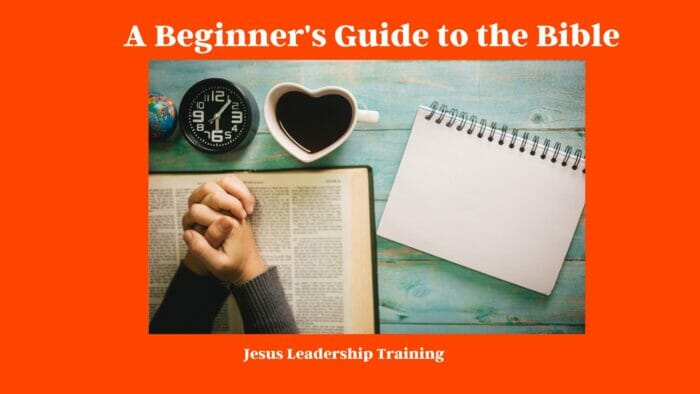The Bible is no run-of-the-mill book. It’s a tapestry of narratives, teachings, and prophecies that have woven together the fabric of faith for billions. Yet, despite its global reach, it remains one of the most misunderstood texts. That’s where A Beginner’s Guide to the Bible: Unveiling the Foundations of Scripture steps in. Let’s journey together into the heart of the Bible, answering those burning questions, unraveling mysteries, and laying a solid foundation for your spiritual exploration.
Table of Contents
A Beginner’s Guide to the Bible: Unveiling the Foundations of Scripture
Unveiling the foundations of scripture is no small feat. It requires understanding of context, culture, history, and a myriad of interpretations. Buckle up, we’re diving in head first.
Understanding the Basics: The Structure of the Bible
The Bible, often seen as a single book, is actually a library of books divided into two main sections: the Old Testament and the New Testament. Let’s crack open this fascinating compendium of spiritual wisdom.

Old Testament: The Dawning of Faith
The Old Testament lays out the genesis of faith, filled to the brim with narratives, laws, and prophecies. It contains 39 books in total, which can be classified into five categories: Law, History, Poetry and Wisdom, Major Prophets, and Minor Prophets.
New Testament: The Culmination of Hope
The New Testament is the climax of the biblical narrative, centered on the life, death, and resurrection of Jesus Christ. It houses 27 books, divided into four sections: Gospels, History, Epistles, and Apocalyptic literature.
The Purpose and Themes of the Bible
The Bible, while a complex and multifaceted book, also has overarching themes that thread through each book and testament.
God’s Love and Redemption
From Genesis to Revelation, the theme of God’s love and redemption for humanity is a pillar of the Bible. This is the heart and soul of the biblical narrative.
Sin and Its Consequences
The Bible doesn’t shy away from the reality of sin and its devastating consequences. It’s a stark reminder of humanity’s frailties and the need for divine intervention.

The Power of Parables
Jesus was known for his use of parables – simple stories illustrating spiritual lessons. They are one of the hallmarks of his teachings and a key feature of the Gospels.
The Prodigal Son: A Lesson in Forgiveness
The parable of the Prodigal Son is a prime example of how Jesus used everyday scenarios to convey profound truths about God’s forgiveness.
The Good Samaritan: A Call to Love
The Good Samaritan parable challenges us to redefine our understanding of ‘neighbor’ and calls us to show love and compassion without prejudice.
Understanding Biblical Prophecies
Prophecies play a significant role in the Bible, serving as divine messages and foretelling future events.
Old Testament Prophecies
The Old Testament is chock-full of prophecies, many pointing towards the coming of a Savior.

Fulfilled Prophecies in the New Testament
The New Testament reveals how these prophecies were fulfilled in Jesus Christ, solidifying the Bible’s credibility and its divine inspiration.
FAQs: Your Burning Questions Answered
1. Why are there different versions of the Bible?
Different versions or translations of the Bible exist to make the text more understandable to people from various linguistic and cultural backgrounds. The message remains the same, just in different words.
2. How do I start reading the Bible?
There’s no one-size-fits-all answer. Some suggest starting from the New Testament, while others recommend a ‘Bible in a year’ reading plan. The key is to find a rhythm that suits you.
3. Is the Bible relevant today?
Absolutely! The Bible’s themes of love, forgiveness, justice, and redemption are timeless. It offers wisdom for today’s world, even though it was written thousands of years ago.
4. What is the most important book in the Bible?
Every book in the Bible contributes to the overarching narrative. However, the Gospels – Matthew, Mark, Luke, and John – are central as they directly chronicle the life and teachings of Jesus.
5. Can the Bible be read without religious intent?
Yes, the Bible is also a rich historical and literary text. While it’s the cornerstone of Christian faith, non-believers may find value in its moral teachings, cultural insights, and historical accounts.
6. Why are some books ‘missing’ from the Bible?
The formation of the biblical canon was a complex process involving discernment, tradition, and divine guidance. Some books, known as apocryphal or deuterocanonical, were not included in the canon used by all Christian traditions.
Final Thoughts : A Lifetime Journey
There you have it – a glimpse into the world of the Bible, thanks to A Beginner’s Guide to the Bible: Unveiling the Foundations of Scripture. Remember, understanding the Bible is a journey, not a destination. It invites you to delve deeper, question freely, and explore boldly. Whether you’re seeking spiritual enlightenment, historical knowledge, or literary beauty, the Bible opens its arms to all. Happy exploring!



